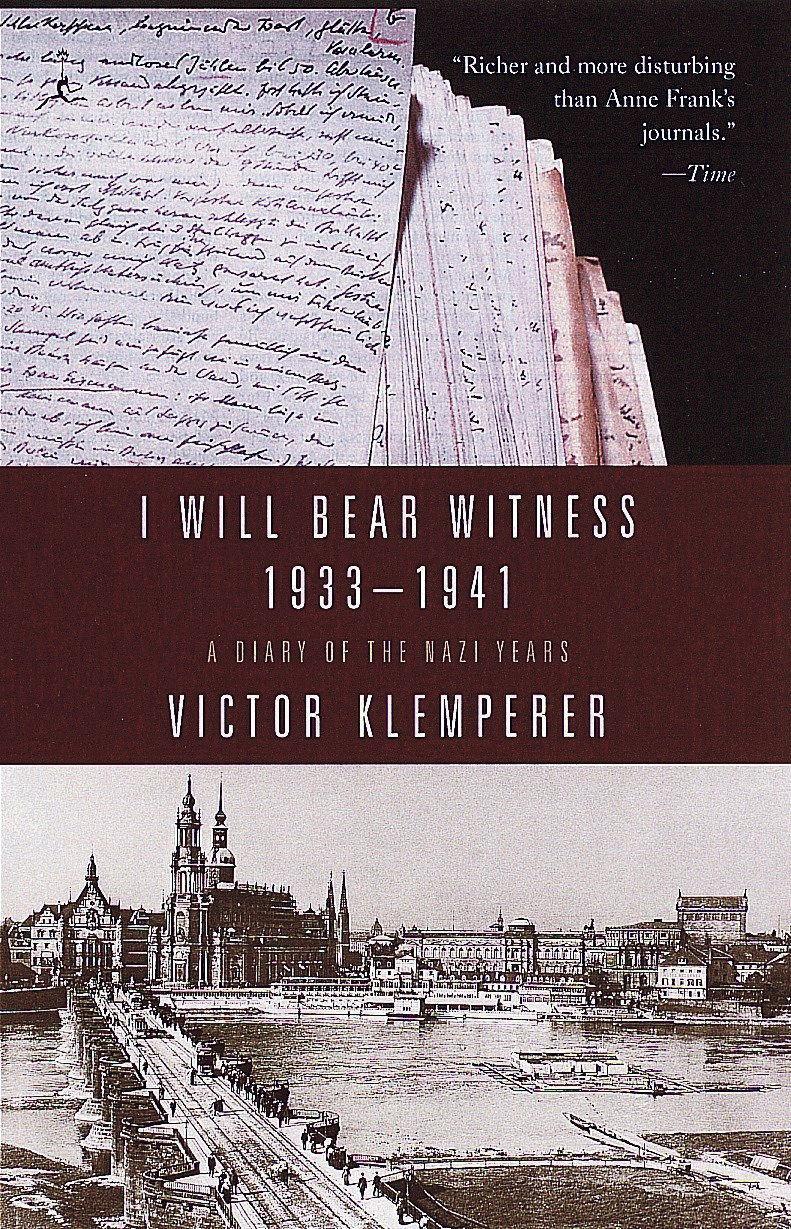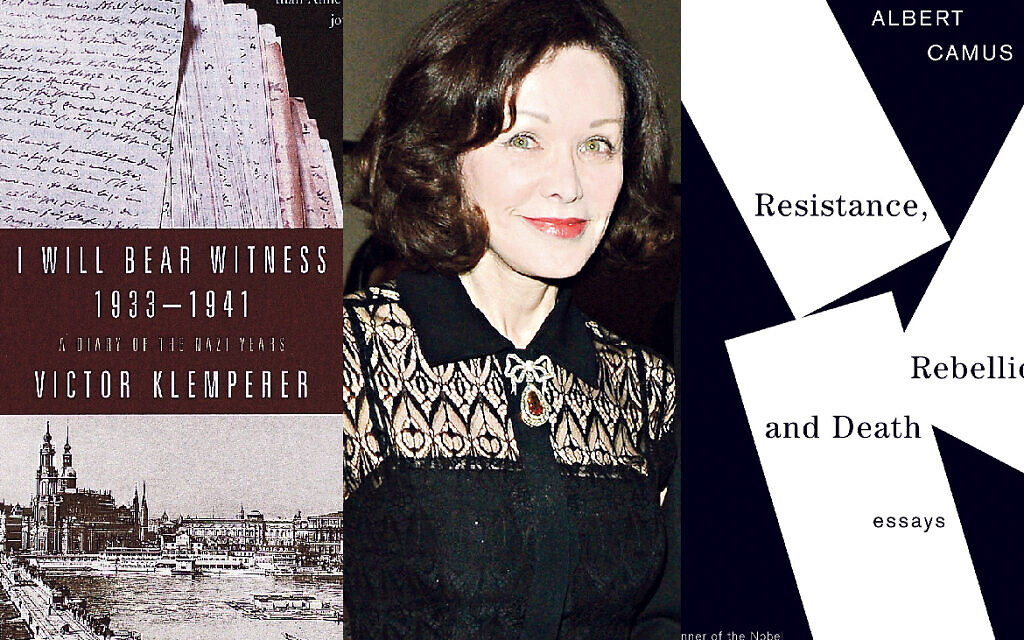Lady Conrad Black: ‘It was absolute hell to write my memoir’
Journalist Barbara Amiel opens up to Zaki Cooper about penning her autobiography after her husband's conviction for fraud and reveals the other books that inspire her
In the latest in our podcast series with Jewish people who are changing the world, Zaki Cooper talks to author and journalist Barbara Amiel about her life, career and books that inspire her, for a Jewish Book Week Gamechangers event
Barbara Amiel, aka Lady Conrad Black, has recently published her memoir, Friends and Enemies. She has been a prominent journalist and columnist, notably for The Times, Daily Telegraph, Sunday Times and editor of The Toronto Sun (she was the first woman to edit a major daily paper in Canada).
Asked to describe herself she writes: “She has many Chanel jackets, cannot cook, owns large Hungarian Kuvasz dogs and is married to Conrad Black.”
Get The Jewish News Daily Edition by email and never miss our top stories Free Sign Up
Your memoir is 600 pages. It’s a story of acute pain and intense passion. It’s personal, honest and compelling. But why did you write it?
I started thinking about it in 2004. My world was collapsing around me. I was losing everything; my husband was losing everything. Dark days loomed. It’s like going down a mine pit or an elevator shaft. The walls are smooth so you have to grab on to something. I can’t cook, I can’t make anything. My friends were retreating. I was pretty much alone. And so all I could do was do pretty much what I’ve done all my life, which is write.
How difficult was it to write?
It was absolute hell. I started in 2004 then stopped because we had to go through court trials. Our money and homes were taken away. Then I went back to it in around 2014. I sat working on it for three years solid, possibly 15 hours a day, on codeine and carnation milk. Then it took me over. It came in at 1,250 pages. I did all the cutting.
Listen to the first clip here:
Did you feel like a weight had been lifted when you sent the final manuscript?
I didn’t feel like that at all. We were still fighting. All I could think of is: it’s done and it’s awful! I didn’t know whether they would publish it.
Because of the interest there was on you, surely you thought publishers would take it?
We had left our position of power and importance in 2003. This was published in 2020. There was this long gap. I am a journalist. I know how fast a story dies. That was really my concern, that readers from two new generations wouldn’t know my name, or care, so the writing itself had to be as good as i could make it.
Listen to clip 2:
You end the book with a list of friends and enemies for seven pages. Why did you decide to conclude in such a fiery way?
I don’t think of it as fiery. I think of it as reasonably honest. There are a lot of people who’ve been very decent to me but had remained quiet and I wanted to thank them. You’ll see that the list of friends is longer than the list of enemies.

Resistance Rebellion and Death
You talk about the emerging animosity towards Israel and recount a famous episode where you reported on the fact the then-French Ambassador called Israel “a shitty little country”. What are your memories of that?
The chapter is called “The bloody anti-Semitism” chapter because nobody wanted me to write it. I insisted it be written. It was a Spectator party and they asked us if they could use our house because my husband’s company owned The Spectator.
They did the guest list. I didn’t know the French Ambassador, but I was sitting at his table when this remark was made. I wrote a column on it not naming him, just saying an ambassador from an EU country made this remark. The very fact he would make those remarks and the casual acceptance of them indicated to me the tolerance of antisemitism, polite dinner table antisemitism, and I was appalled. He outed himself in the press and then it became a cause célèbre. Everyone said I’d behaved very badly, [that] I should never have put in print what was said privately.
Listen to clip 3 here:
There’s also a chapter that begins with a passage from the Yom Kippur service. Have you been going to synagogue in recent years?
I belong to West London Synagogue, which is a beautiful synagogue. I have to be a Reform Jew. I’d much rather be conservative or Modern Orthodox. But since I can’t speak a word of Hebrew and had this rather absurd growing up, the best I can do is to find the best Reform synagogue. I can’t get through the High Holy Days without being in synagogue. At that time, it was especially important as I was trying to get Conrad out of prison and the metaphor of the gates opening and closing seemed to resonate with the prison gates opening and closing.
Asked to describe herself she writes: “She has many Chanel jackets, cannot cook, owns large Hungarian Kuvasz dogs and is married to Conrad Black.”
You love books and have 30,000 in your home. One you’ve selected is I Will Bear Witness by Victor Klemperer. Why do you like that book?
I don’t like it, I live it painfully and guiltily. I think every Jew and non-Jew should read it. This man wrote a diary on a day-to-day basis about the Holocaust, not knowing what would happen tomorrow. He was in Dresden. Each entry he thinks it can’t get worse and you know it’s going to. It goes from 1933 to 1945. He was married to a courageous Gentile, which saved his life because his deportation was delayed and finally scheduled for when Dresden was firebombed. The hell that descended saved him. His two volumes are next to my bed. It reminded me that every time things got bad for me how foolish, how little my difficulties were in the face of Klemperer’s nightmare.

Another Jewish-related book is The Pity of It All by Amos Elon. Why did you choose this?
It’s extraordinarily well-written and very interesting. It’s a history of the Jews in Germany coming in, being accepted. There is a very important lesson apart from the intrinsic interest of the book. (it includes an ancestor of mine, Moses Mendelssohn, and his family).
The Jews who were established in Germany, wealthy and assimilated as well as a cultivated intelligentsia, didn’t want these low-class central and eastern European Jews, coming in. They were ashamed of them with their payos, strings and guttural Yiddish.
Here were two persecuted groups of people, one looking down on the other because they might unsettle the position they had scrambled up to. I thought Amos Elon wrote that beautifully.
The Penguin Essays of George Orwell have particular resonance for you. Why?
Orwell said economy in writing style is a hallmark of quality. His clear eye saw through every hypocrisy. The famous essay everyone should read now is Politics and the English language, in which he talks about how we debase words so they can cover up sloppy or dangerous thoughts. He would certainly have been appalled at the pretence of equity that justifies the cancel culture of today.
Barbara’s top reads:
- I Will Bear Witness by Victor Klemperer
- The Pity of It All by Amos Elon
- The Penguin Essays of George Orwell
- Resistance, Rebellion, and Death The Plague by Albert Camus
- Pnin by Vladimir Nabokov
- The Wind-Up Bird Chronicle by Haruki Murakami
Listen to the FULL podcast here:

Thank you for helping to make Jewish News the leading source of news and opinion for the UK Jewish community. Today we're asking for your invaluable help to continue putting our community first in everything we do.
For as little as £5 a month you can help sustain the vital work we do in celebrating and standing up for Jewish life in Britain.
Jewish News holds our community together and keeps us connected. Like a synagogue, it’s where people turn to feel part of something bigger. It also proudly shows the rest of Britain the vibrancy and rich culture of modern Jewish life.
You can make a quick and easy one-off or monthly contribution of £5, £10, £20 or any other sum you’re comfortable with.
100% of your donation will help us continue celebrating our community, in all its dynamic diversity...
Engaging
Being a community platform means so much more than producing a newspaper and website. One of our proudest roles is media partnering with our invaluable charities to amplify the outstanding work they do to help us all.
Celebrating
There’s no shortage of oys in the world but Jewish News takes every opportunity to celebrate the joys too, through projects like Night of Heroes, 40 Under 40 and other compelling countdowns that make the community kvell with pride.
Pioneering
In the first collaboration between media outlets from different faiths, Jewish News worked with British Muslim TV and Church Times to produce a list of young activists leading the way on interfaith understanding.
Campaigning
Royal Mail issued a stamp honouring Holocaust hero Sir Nicholas Winton after a Jewish News campaign attracted more than 100,000 backers. Jewish Newsalso produces special editions of the paper highlighting pressing issues including mental health and Holocaust remembrance.
Easy access
In an age when news is readily accessible, Jewish News provides high-quality content free online and offline, removing any financial barriers to connecting people.
Voice of our community to wider society
The Jewish News team regularly appears on TV, radio and on the pages of the national press to comment on stories about the Jewish community. Easy access to the paper on the streets of London also means Jewish News provides an invaluable window into the community for the country at large.
We hope you agree all this is worth preserving.
-
By Brigit Grant
-
By Laurent Vaughan - Senior Associate (Bishop & Sewell Solicitors)
-
By Laurent Vaughan - Senior Associate (Bishop & Sewell Solicitors)
-
By Laurent Vaughan - Senior Associate (Bishop & Sewell Solicitors)
-
By Laurent Vaughan - Senior Associate (Bishop & Sewell Solicitors)






















